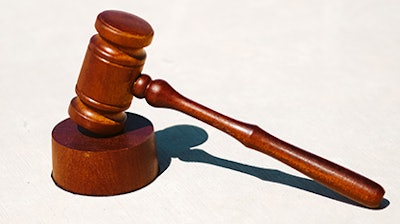
A judge in Massachusetts has blocked a lawsuit by a nonprofit that sought to prevent Boston's incoming National Women's Soccer League franchise from making Franklin Park's White Stadium the team's new home.
The Emerald Necklace Conservatory, along with 20 individuals, filed a lawsuit last month against the city of Boston mayor Michelle Wu, Boston Unity Soccer Partners LLC and others to stop what they called the proposed privatization of White Stadium and 1.5 acres of surrounding public parkland in Franklin Park.
Boston Unity Soccer Partners and Wu agreed to share White Stadium with Boston Public Schools athletic teams when the NWSL expansion team was announced back in September.
According to WCVB, Boston Unity Soccer Partners outlined their proposed project to redevelop White Stadium in a writing for the Boston Planning & Development Agency.
The renovations proposed by Boston Unity Soccer Partners include a weather canopy with a leaf motif, curving staircases and balconies, a restaurant and a beer garden. There is also the potential for a geothermal well system to be built under the field.
"Renovating a 75-year-old, 10,000-seat, outdoor stadium with necessary structural and system upgrades to bring it into compliance with building and safety codes is expensive," the ruling from Superior Court judge Sarah Ellis said. "BUSP was the only entity that responded to the city's (request for proposals.)"
"The proposed project would upgrade White Stadium significantly from its current, dilapidated condition," the ruling said. "The proposal does not alter White Stadium's identity as a (Boston Public Schools) athletic stadium, expand the footprint of White Stadium, nor develop areas of Franklin Park outside the stadium property."
Ellis said that the Emerald Necklace Conservatory and plaintiffs failed to show how Unity Soccer's plans would cause them irreparable harm.
"Any delay could result in rising costs associated with the proposed project, reducing the buying power of the $50 million the city has been allocated to the renovation," the decision said. "The city may suffer irreparable harm should a preliminary injunction enter halting the progress on the proposed project."
Ellis acknowledged that the plaintiff's concerns about usage of the facility are valid, but added that those are a separate matter.
"The concerns expressed about game day impacts are valid, but it is legally premature to address these concerns by way of a preliminary injunction now, two years before defendants anticipate the stadium will host a BUSP game," the decision said.
In a written statement, Wu said she was "thrilled" with the ruling in what she called a "frivolous lawsuit."
"For the first time since the stadium’s opening, the city has a committed partnership to invest in and sustain the improvements that our students, park lovers, and neighbors deserve — while dramatically expanding the hours of usage for BPS sports and community events," the mayor's written statement said.





































